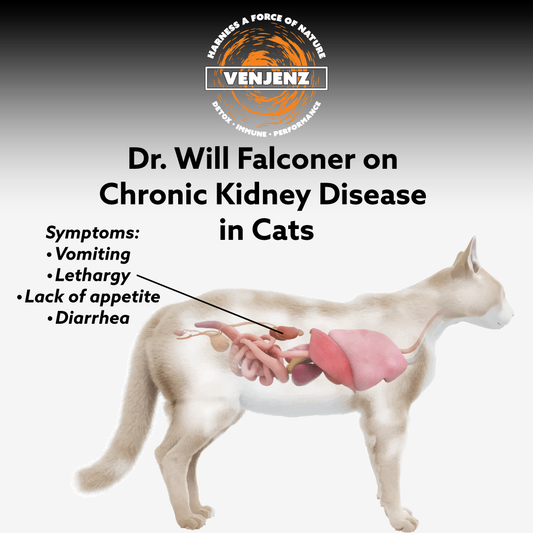The Latest
Programming Your Immune System: The Power Behind MOTHERBOARD
In the age where our immune systems are continuously challenged by environmental toxins, stress, and evolving pathogens, the quest for an enhanced immune defense has never been more critical. MOTHERBOARD,...
The Science of Detoxification: Why Micronized Zeolites Are Essential
In the modern world, our bodies are continually bombarded with toxins from various sources—environmental pollutants, processed foods, industrial chemicals, and more. The cumulative effect of these toxins can significantly impact...
VENZEO, MOTHERBOARD & RIPCORD Were Created To Work Together Symbiotically
In the quest for optimal health, the synergy between detoxification, immune support, and inflammation management cannot be overstated. VENJENZ, a forward-thinking wellness company, has meticulously crafted three products—VENZEO, MOTHERBOARD, and...
Dr. Will Falconer - Helping Cats with Kidney Disease
What’s known about kidney disease First, let’s get some abbreviations out the way, so we’re all on the same page. CRF = chronic renal failure, CKD = chronic kidney disease....
Microplastics are in what!? The tiny toxic pervasive threat to you, children and pets
In recent years, the term "microplastics" has become synonymous with environmental concern but it goes even further because they’re now traced to almost every aspect of our lives! Microplastics, those...
Our Topics
Popular Posts





